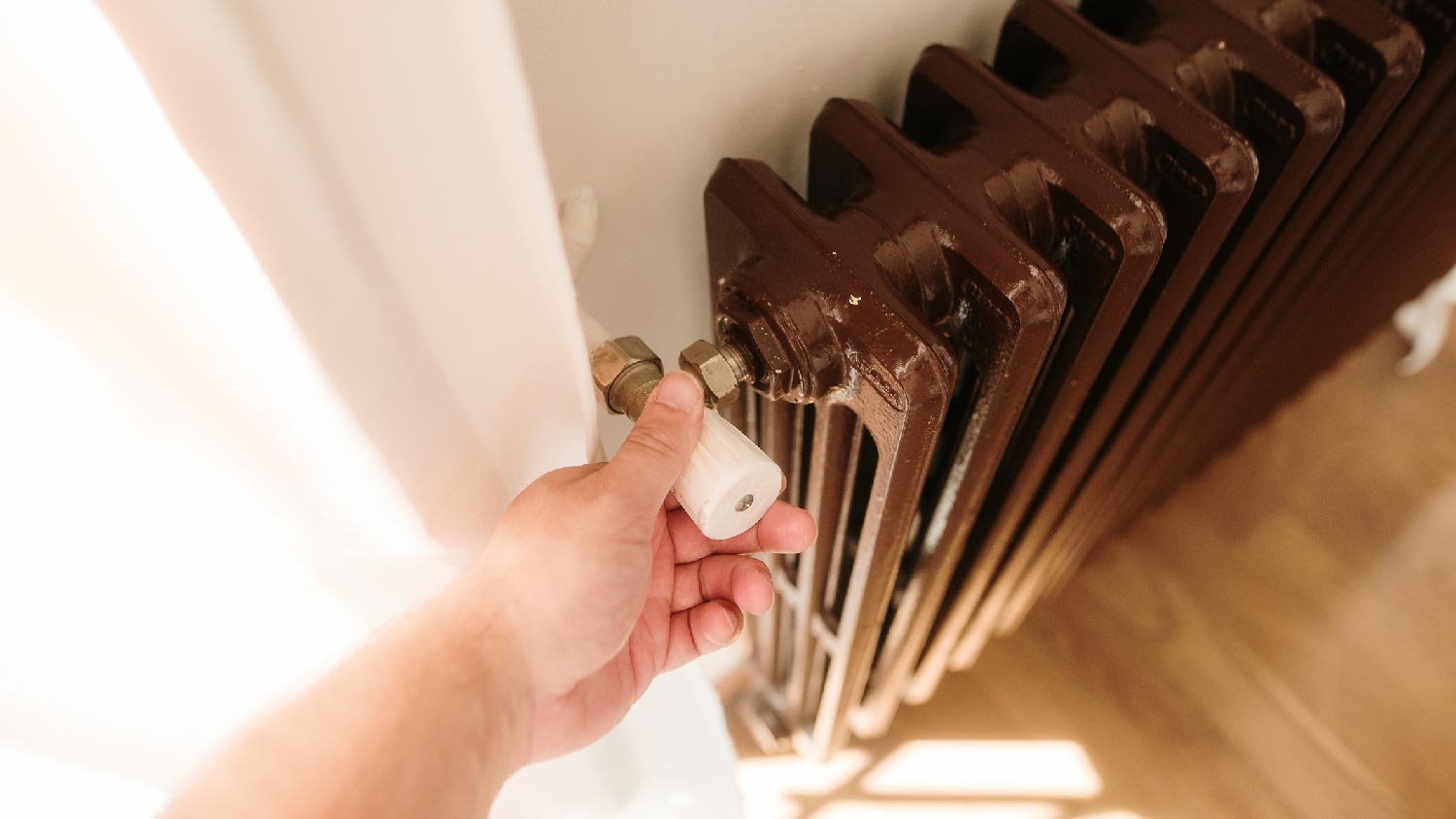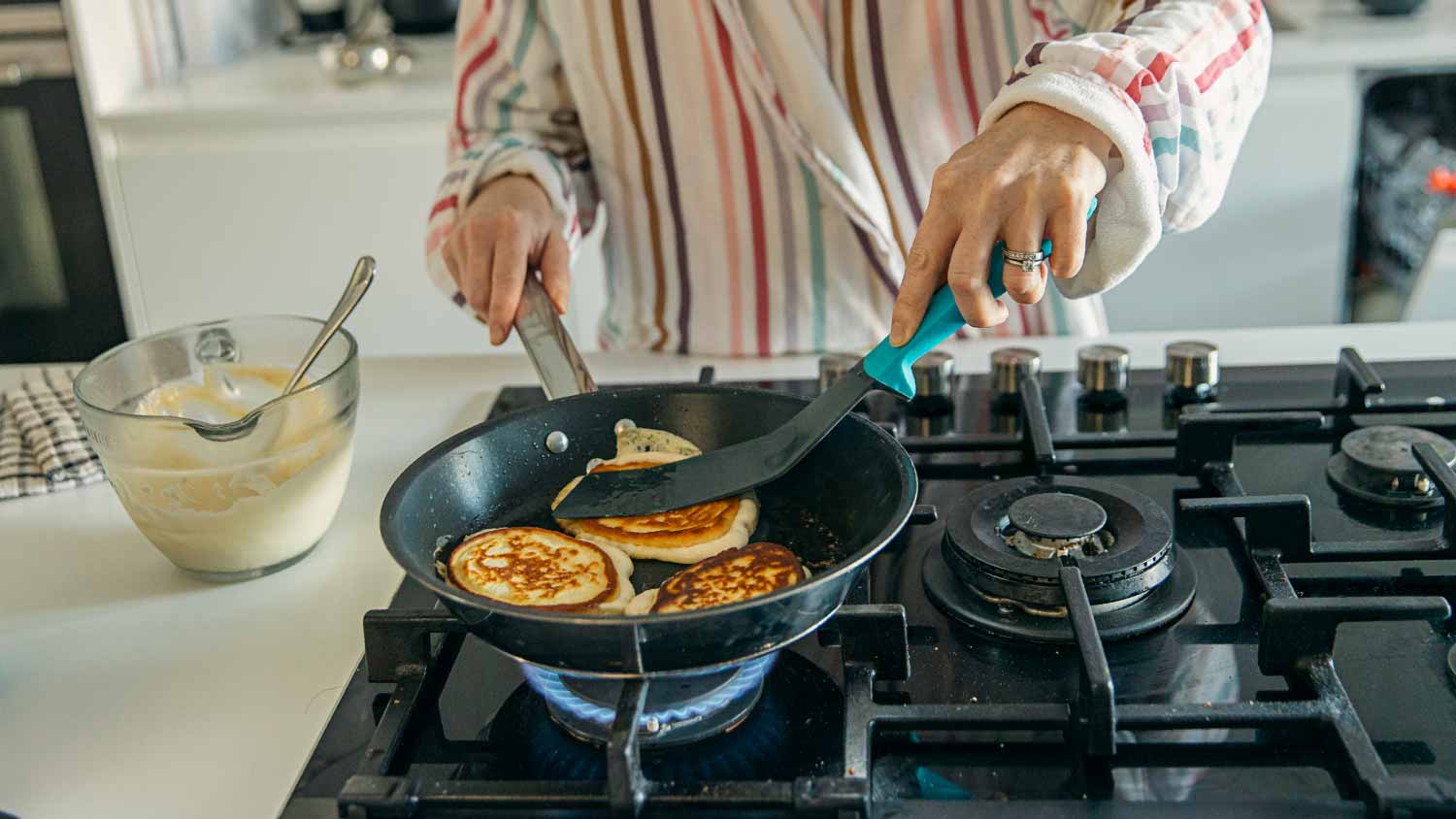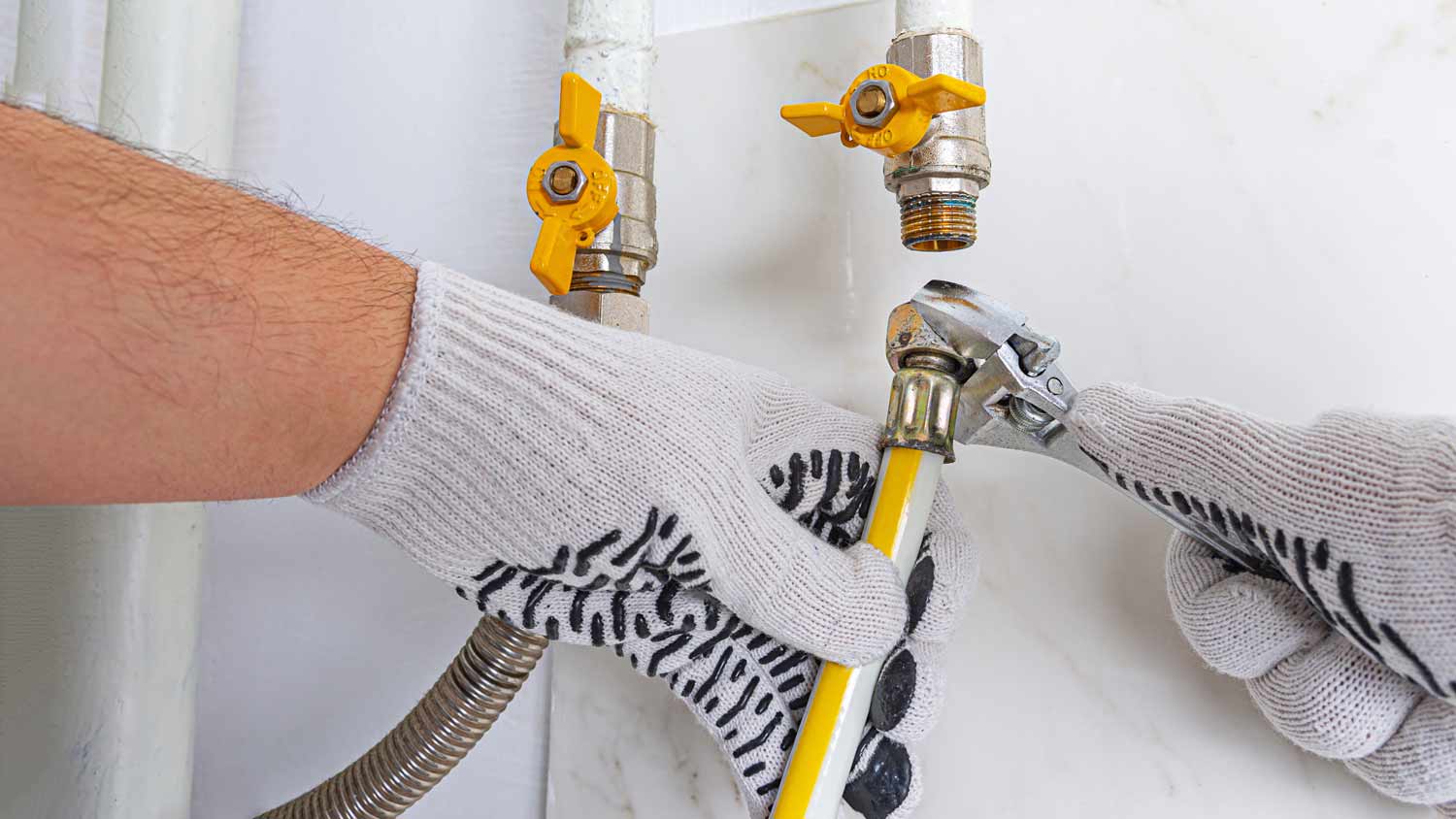Can Gas Lines Freeze in Cold Weather?
Leaks and poor installation can cause big issues


The gas inside the lines won’t freeze even on the coldest winter days.
Your gas lines can freeze due to poor installation or a leak.
If you suspect frozen gas lines or a leak, call a professional right away for help.
Get regular inspections to avoid dangerous scenarios that can be life-threatening.
We all know that extremely cold weather means we have to drip faucets to prevent burst pipes, but can gas lines freeze? The good news is that if you have a well-maintained, properly installed gas system, your chances of frozen gas lines are extremely slim. However, if you have a gas system that’s damaged, isn’t built to code, or is nearing the end of its lifespan, the pipes can leak and freeze.
Can Gas Lines Freeze?
The short answer to whether gas lines can freeze is that gas lines rarely freeze, and if they do, it’s because of poor installation or a leak. Since gas leaks are extremely dangerous, it’s crucial to understand the ins and outs of frozen gas lines.
The reason gas lines rarely freeze is because propane and natural gas freeze at incredibly low temperatures (at minus 306.4 degrees Fahrenheit and minus 295 degrees respectively). This means the gas won’t freeze, even during extreme cold weather events. On the other hand, water pipes can freeze when it’s below 20 degrees for several days in a row.
Poor Installation
A poor installation that doesn’t meet local building codes can have multiple issues that cause freezing lines. Gas lines with pipe types that aren’t allowed in your area or lack proper joints fall under this category. In these cases, gas lines have a higher risk of damage from wear and tear and freezing temperatures, which can lead to leaks.
Gas lines that are improperly placed can be susceptible to freezing weather and other types of damage. For example, components of your gas system like the meter, regulator, and propane tanks should be installed away from roof eaves. Otherwise, snow, ice, and rain can fall from the roof and onto the components, causing them to freeze, crack, or break.
If you’re unsure if your gas system is up to code, call a natural gas plumber immediately for a gas pressure test inspection. Besides gas lines freezing in cold temperatures, there could be potentially dangerous consequences, including leaks, fires, and explosions.
Gas Line Leak
Old, outdated pipes that haven’t been properly maintained can leak. During a cold winter season, old pipes can crack from the repeated cycle of extreme cold and thawing. Some materials, like galvanized pipes, naturally wear down over time and become prone to leaks. To avoid these issues, have your gas pipes regularly inspected and maintained.
If your plumber recommends repairing or replacing a gas line, heed their advice and get the job done. Most pipes have a lifespan of 50 years, while black steel pipe has a lifespan of 20 to 50 years. So, if it’s been longer than that, look into getting modern pipes that are safer to use.
Signs Your Gas Lines Are Frozen
Here are some signs of a gas leak to look out for. Any of these signs combined with frigid temperatures can mean that your gas lines are frozen:
Low pressure or no gas flow to your gas appliances
Unusually high gas bills
The smell of rotten eggs
Hissing sounds
Corrosion and rust on your gas piping
Dead plants
Bubbles in standing water
Physical symptoms like fatigue, headaches, and dizziness
What to Do if You Suspect Frozen Gas Lines

If you suspect your gas lines are frozen, hire a natural gas plumber near you immediately. The cost to repair a gas line depends on the issue, but a pressure test to check for leaks costs $75 to $150. Gas line repairs cost $600 on average but fall between $120 and $250 if the pipes are easily accessible. On the other hand, a complex repair that requires excavation can range between $1,500 and $5,000.
If you suspect a gas leak, turn off gas appliances and get your family and pets out of the home right away. Call the gas company or a plumber for assistance. Don’t touch light switches or use anything with an open flame, like matches or candles, inside the house when you suspect a leak.
It may come as a surprise, but plumbers are oftentimes the best professionals to hire for gas-related jobs. In fact, most states require plumbers to maintain certifications and insurance in order to take on projects related to gas, including installing and repairing gas lines for appliances, like ovens, stoves, and dryers.
Related Issues to Look Out For
Keep an eye on your gas meter and appliances to avoid complications from cold weather. While your gas pipes are unlikely to freeze, your meter can freeze if there is ice and snow buildup. If you notice ice or snow buildup, remove it with your hands, a soft broom, or a brush. Don’t use sharp objects, hot water, or chemicals because they can damage the meter. Many areas with high amounts of snow and ice require snow shields or a snow shelter to protect the meter.
Your gas appliances have a condensation drainpipe that allows extra condensation to exit the home. Ensure this pipe is properly insulated so it doesn’t clog or freeze, which can cause the appliance to turn off unexpectedly.
How to Prevent Frozen Gas Lines
The easiest way to prevent frozen gas lines is to make sure all of the work is done to code. You can have peace of mind as long as you hire a licensed, reputable pro.
It’s also important to schedule regular, annual gas line inspections so issues are caught early. Even a brand-new gas line system can fail if there is accidental damage from improper excavation work or mistakes during remodeling.
Old pipes are more likely to leak, so planning to repipe your gas lines toward the end of their lifespan will also help prevent frozen lines.
Frequently Asked Questions
Plumbers start by walking around the property to see if they notice any signs or sounds of a gas leak. They can also use tools like electronic gas detectors and infrared cameras to find the source of leaks. There are also detectors that use laser, thermal, and multi-wavelength imaging. All these devices allow a plumber to scan your home and pinpoint the exact location of a leak.
As long as a licensed professional installs your gas lines, you don’t have to do anything extra to prepare for cold weather. If there are pipes that require a wrap, your installer should have done it for you already. If you want to be absolutely sure your gas system is good to go for winter, the best option is to schedule a gas line inspection.
Any gas pipe can leak, especially if it’s old or isn’t properly maintained. However, even with a shovel, plastic pipes are more easily damaged by impact. That’s why it’s so important to have gas lines marked by the utility company before you begin digging for any reason. Some metal pipes, like black pipes, galvanized steel, and copper, aren’t as easily damaged by impact but can degrade over the years, leading to leaks.















